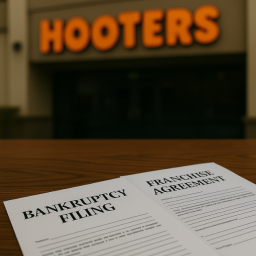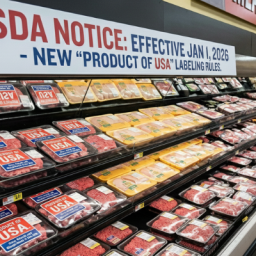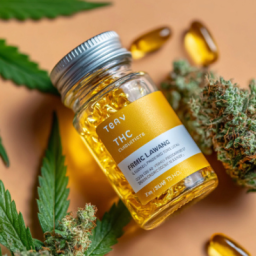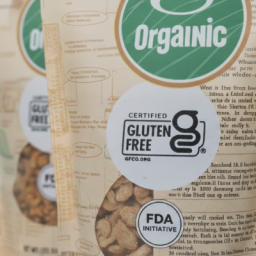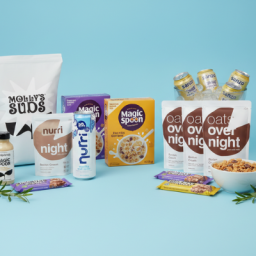
A new trademark battle is brewing in the bagel world. Call Your Mother, the fast-growing D.C.-based “Jew-ish” deli chain, has sued Call Your Bubbi, a New Jersey bagel shop, claiming the smaller brand copied its name, theme, and phone-inspired branding. The lawsuit offers a real-world look at how cultural branding and clever wordplay can cross into infringement territory.
Let’s go through what the complaint alleges, how courts analyze name similarity, and why restaurant owners should pay close attention to this one.
Why Did Call Your Mother File a Trademark Lawsuit Against Call Your Bubbi?
Call Your Mother alleges that Call Your Bubbi adopted a confusingly similar name, theme, and visual branding, creating the impression the two businesses are affiliated. In the complaint, the plaintiff argues that both names:
- Begin with “Call Your…”
- End with a familial matriarch term (Mother vs. Bubbi)
- Operate within the same Jewish-inspired deli niche
- Use circular logos and vintage telephone motifs
According to the filing, Call Your Mother sent a cease-and-desist letter in August 2025, but the New Jersey shop continued using its branding, prompting the lawsuit.
The plaintiff is seeking an injunction, damages, attorneys’ fees, and destruction of all infringing materials.
Are “Call Your Mother” and “Call Your Bubbi” Legally Too Similar?
Trademark law revolves around one question: Would consumers likely confuse the two brands?
Courts examine factors such as:
Similarity in wording and structure
Both names share a near-identical format. Call Your Mother argues that “Mother” and “Bubbi” carry parallel emotional and cultural meaning, especially within the deli space where Yiddish-inspired branding is common.
Similarity in logo and trade dress
Both companies use circular logos and old-style telephone imagery. The complaint emphasizes that this reinforces the overall commercial impression.
Overlap in services
Both sell bagels, deli sandwiches, coffee, and branded merch. Identical goods increase consumer confusion risks.
Market and cultural overlap
Even though the businesses operate in different states, the plaintiff claims its planned expansion would naturally reach New Jersey, giving it a reasonable “zone of expansion.”
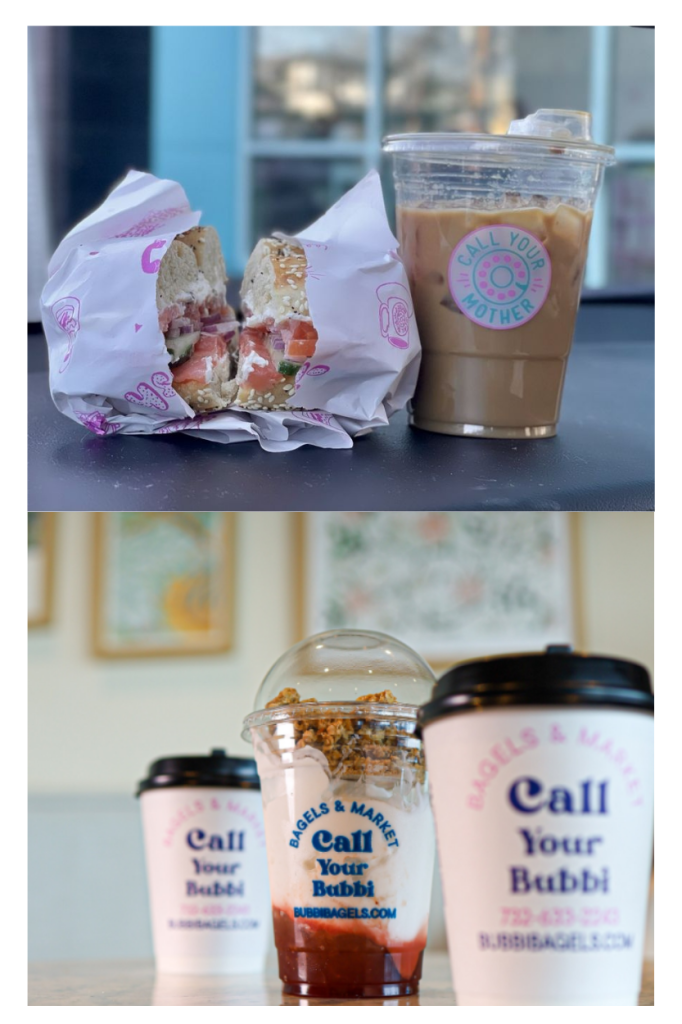
image 1 source, image 2 source
Could Call Your Bubbi Defend Its Use of the Name?
Yes, trademark defendants often challenge the plaintiff’s claim of confusion. Likely defenses include:
“Bubbi” and “Mother” Are Not the Same Word
The shop may argue that “Bubbi” (Yiddish for grandmother) creates a different meaning and demographic tone.
Geographic distance limits confusion
If Call Your Mother has no physical locations in New Jersey, the defendant could argue consumers wouldn’t assume affiliation.
Cultural terms are commonly used in deli marketing
The defendant may suggest the Jewish matriarch trope is generic within the category, reducing the plaintiff’s exclusivity.
No evidence of actual confusion
While not required, lack of consumer confusion evidence can weaken the plaintiff’s argument.
Still, the overall structure of the two names and the deliberate echoing of Call Your Mother’s style may make these defenses difficult.
What Does This Lawsuit Reveal About Branding Risks in the Restaurant Space?
Food brands, especially those built on cultural identity, increasingly face trademark disputes as they expand beyond their original markets.
Cultural branding isn’t a legal loophole
Using Yiddish, Spanish, Italian, or other culturally inspired terms doesn’t exempt businesses from infringement if the overall impression is confusingly similar.
Geography isn’t always a shield
Courts recognize that modern consumers follow restaurants on Instagram, TikTok, and delivery apps. “Local only” arguments carry much less weight than they did a decade ago.
Trade dress matters as much as the name
Logos, motifs, color palettes, and menu design all contribute to the consumer’s impression. Similarity in “look and feel” can expand liability.
Early trademark registration pays off
Call Your Mother’s federal registrations give it a stronger foundation, and the presumption of exclusive rights.
At Juris Law Group, we see these issues frequently as restaurant concepts scale. Many conflicts could be avoided with earlier trademark searches and more intentional naming strategies.
How Could This Case Impact Other Emerging Food Brands?
Although the lawsuit focuses on two deli shops, it carries broader implications:
- Businesses with thematic or pun-based names must tread carefully.
- Expanding regional brands are increasingly enforcing their marks to protect future markets.
- Food entrepreneurs need trademark clearance before opening storefronts, not after.
- Social-media exposure creates nationwide visibility, increasing the risk of name collisions.
If the court sides with Call Your Mother, we could see stronger policing of culturally themed branding in niche food categories.
FAQ
Is this considered a trademark infringement lawsuit?
Yes. The complaint alleges federal trademark infringement and unfair competition under the Lanham Act (15 U.S.C. § 1125).
Does geographic distance help Call Your Bubbi’s case?
Possibly, but not significantly. Courts recognize that restaurant brands have national reach through online presence and franchising.
What if Call Your Bubbi changes its name now?
Rebranding could reduce damages, but the plaintiff may still pursue costs and attorneys’ fees depending on alleged willfulness.
Could the case settle?
Almost certainly. Most restaurant trademark disputes end with a negotiated rebrand.
Does the cultural angle (“mother” vs. “bubbi”) matter legally?
Yes. Courts consider overall impression, including thematic meaning and consumer associations.
Key Takeaway
This case shows how small similarities in name or branding can create real trademark risk for restaurants. As food brands grow, distinct names and clear brand identities matter more than ever. Early trademark checks and stronger brand differentiation can prevent costly disputes.
